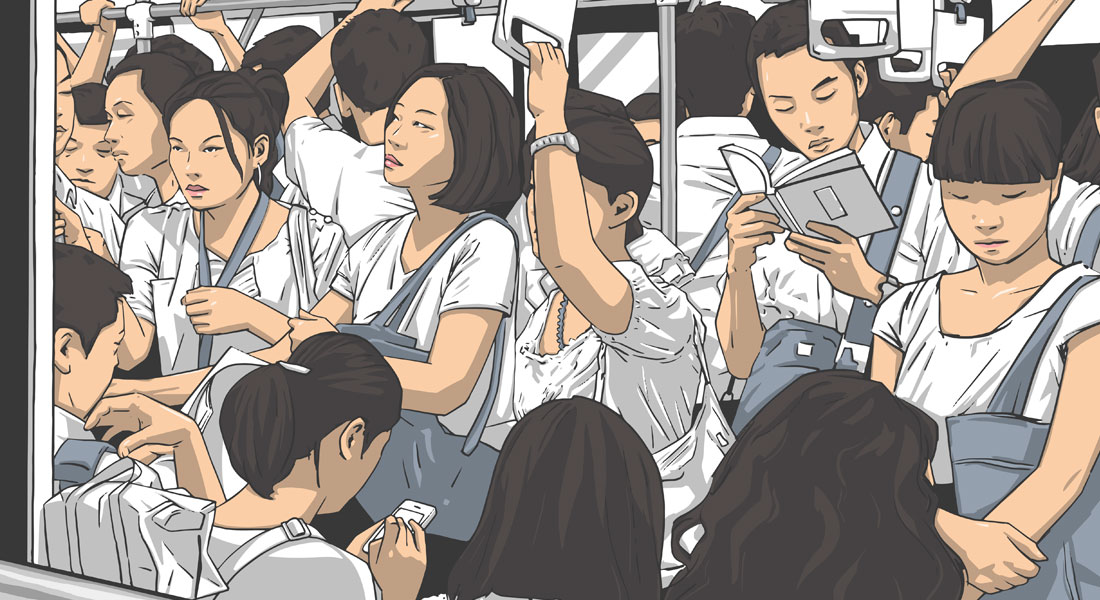


If we talk about population nowadays – especially in developed countries, where technology has changed life so much – we hear messages that seem contradictory and often end up being points of misguided political mobilization. On one hand, Earth has more people than ever: more than eight billion, maybe another billion while I write. But on the other hand, in technologically developed areas such as Europe or Japan; the population is aging, fewer children are born, some industries do not find enough workers, and pension systems could collapse. In the USA and parts of Europe, there are parallel complaints – often made by the same people! – that, on one hand, salaries are supposedly low due to an "excess" of immigrant workers (a spurious and false accusation, as the stagnation of wages responds to many complex factors); yet at the same time an "excess" of retired older people will be a problem because there won’t be enough money for their pensions or enough workers to support the necessary taxes. So, which one is it? Too few or too many young workers?
Well, the first mistake is to talk about sheer numbers. Our societies and demographics are complex ecosystems, where hard numbers don’t always tell the whole story and may leave wrong impressions. (For example, despite the often racist sensationalisms, and many conservatives’ nationalistic tantrums, first- and second-generation immigrants remain small minorities in almost all developed countries). It depends on what exactly are we counting, and with what intention. Talking about an "excess" or “lack” of certain types of people can end up triggering misguided anxieties, making scapegoats of particular groups which can then be the target of all kinds of abuses, from absurd pro-natalist pressures to discriminatory practices or violent acts. But then: is there, in Western democracies, an “excess” or a “lack” of workers, or children, or retirees? It depends on what kind of workers we talk about; and on what exactly we mean by “lack” or “excess” of certain types of people. Too many or too few… for what?
Some people also believe that global overpopulation is a myth propagated by "anti-natalist liberals". However, our planet clearly has limited space and resources; the number of people on it can’t be unlimited. It’s true that we could fit many more people, if we speak only about space. It’s not just about space though, but also resources. I could fit fifty people in my room if they just stand next to each other; but that doesn’t mean they’ll be comfortable or that I have food for everyone, and tension and violence will arise. It's not just about numbers and square meters, but also resources and behavior: how much we consume, pollute and destroy with our lifestyle. Numbers and lifestyle also influence each other. More education – especially female education – leads to having fewer children, and those children tend to be better educated, it may also lead to a more eco-friendly life. But in the future, technology could make resource use more efficient; cities might have gardens and crops on rooftops; our energy could be 100% clean … population numbers may end up being altogether independent from sustainability. We don’t know yet.
On the other hand, yes, populations in many countries are aging and there may be problems with pensions or a lack of caregivers; but the solution can’t be to reproduce unrestrainedly again. The solution is to change how employment, savings and pension schemes work. If the – too few, or too many? – young people now entering the workforce have low wages and can’t contribute enough to taxes, to their own and other people's pensions, or to their elders’ care; we’d have to be investing much more in science, research and development, and advanced education, so that there may be more entrepreneurs who create jobs, and well-paid jobs in innovative industries. This of course isn’t easy, but also doesn’t depend on the numbers themselves. It depends on policy, behavior and education.. Sadly, there is no shortage of people who believe migrants are to blame for low wages, or even – unbelievable as it sounds! – a few radical anti-feminists who blame women for working and "devaluing wages" instead of staying home... yes, someone said this to my face.
There is no "shortage of" or "excess" people in and of itself. It depends on what we are counting, and what for. Robots and artificial intelligences can soon destroy many jobs – but can also create others that we can’t yet imagine. The supposed "excess" of people could be a great asset if those people are given the education and the means to, for example, start their own businesses or be innovative. Education and political willingness will be key, in order to propose solutions rather than portrayals of the Scapegoat of the Day.









